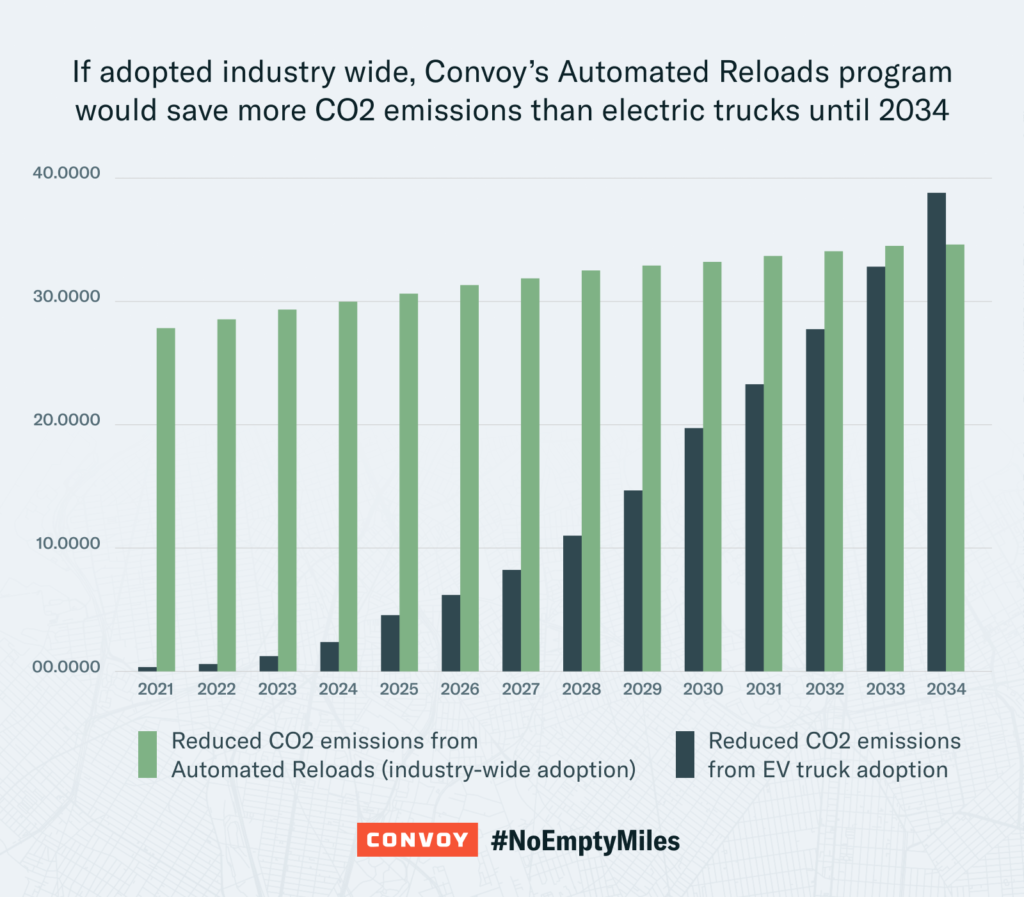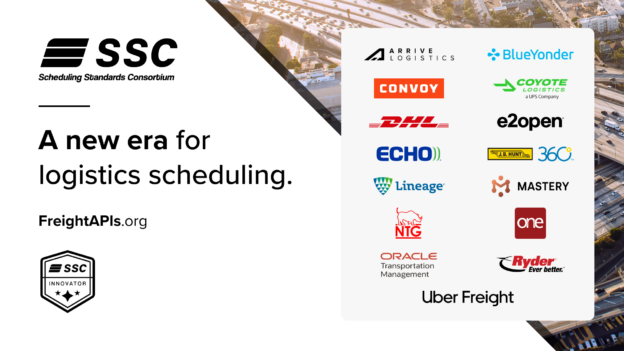35% of the time that truck next to you on the highway is empty – that’s a really big deal for the environment
Data Science, Freight Research, Industry Insights, Sustainability • Published on November 8, 2021
Despite the promise of electric vehicles, the biggest immediate opportunity to reduce carbon emissions in trucking is to focus on empty miles.
Driving down the highway surrounded by heavy duty trucks is an everyday occurrence for all of us. However, the staggering fact is that 35% of the time, those trucks are completely empty. That’s a really big deal for many reasons, but it’s especially significant for the environment. Think about this: each year heavy-duty trucks run 175 billion miles moving truckload freight in the US. Of these, 61 billion are empty miles – meaning trucks traveling without loads – contributing more than 87 million metric tons of carbon emissions annually.
It’s an even bigger problem when you take into account that scientists from around the world are telling us that we have a limited window to make unprecedented headway towards the biggest environmental and societal impact we can have: staying below 1.5 degrees Celsius of global temperature rise. According to the Intergovernmental Panel on Climate Change (IPCC), the world would have to curb its carbon emissions by at least half by 2030 and then achieve carbon neutrality by 2050 to meet this target. That’s ambitious for any industry, let alone freight and trucking.
At Convoy, we share the belief that action needs to be taken immediately. According to the Bureau of Transportation Statistics, heavy-duty full truckload freight accounts for more than 252 million metric tons of CO2 emissions per year. The $800B trucking industry literally drives the health of our economy, yet new technology-based solutions to age-old problems have been slow to materialize. Convoy set out to compare two technologies for reducing carbon emissions in freight: the adoption of electric trucks and the use of automation to batch shipments together for drivers. We wanted to understand the short and long-term opportunities of both technologies, as a way to help supply chain and logistics leaders understand how to make the most sustainable choices when planning for the movement of their freight, both now and in the future.
Our Analysis: Electric Trucks vs. Automated Reloads
Research by Guidehouse Insights found that as of 2021, electric trucks represent only about 2% of U.S. new-vehicle sales, with 30% of market share expected between 2025 and 2030. Additionally, Guidehouse’s research predicts electric trucks to be the majority of heavy duty trucks on the road sometime between 2040 and 2045.
Unfortunately, those adoption rates may not occur fast enough to meet the near-term environmental challenges the world is facing today. Convoy’s latest research, which took the assumptions from Guidehouse and forecasted those figures over the next 13 years, shows the inflection point of when electric trucks will save the equivalent carbon emission as automated shipment batching does today, is not until the year 2034. Additionally, these findings show that supply chain leaders need to be taking action today to reduce emissions as well as preparing for the eventual adoption of electric trucks to run zero emission freight.

At Convoy, our Automated Reloads program algorithmically groups multiple full-truckload shipments for carriers, which makes it easier to find more loads to keep trucks full and earning, while eliminating wasted time searching and minimizing empty miles driven in search of work. Convoy’s Automated Reloads program has already yielded a 45% decrease in CO2 emissions from trucks running empty less often. This accounts for more than 3.5 million pounds of carbon emissions saved since we introduced bundling of loads to our network in 2019.
If the industry as a whole were to adopt these same practices and reduce empty miles at the same rate as Convoy, CO2 emissions would be reduced by 40 million metric tons – the equivalent of taking 8.6 million passenger vehicles off the road for a year.
Next Steps for Building a Sustainable Future
As we come to the end of 2021 and enter into 2022, the problem is going to be the same. Everybody is still going to be talking about the impact of climate change, the supply chain is going to continue to be a disruptor and supply chain leaders will continue to be tasked with achieving sustainability goals as part of their roles and responsibilities. But, what can change in 2022 is the progress that’s made.
In 2022, supply chain leaders should take two steps to build a strong path for net zero emissions and get empty trucks off the road. First, initiate conversations with key stakeholders in your supply chain to address the topic of empty miles – it’s one of the simplest ways to make progress when it comes to sustainability efforts. Second, start having conversations about the adoption of electric trucks and work with your carriers and partners to figure out how to introduce electric trucks into the freight network over the next 20 years. Today, 20 years may sound like a lifetime away, but it is better to prepare now.
At the heart of it, we’re all focused on solving the same problems of waste and inefficiency in the freight industry. At Convoy, we believe that by working together to reduce the 35% of the time trucks drive empty we can make the greatest immediate impact that can benefit the environment, and that’s exciting. Join us and other forward-looking shippers and carriers as we reduce carbon waste from empty miles – the time for action is now.



